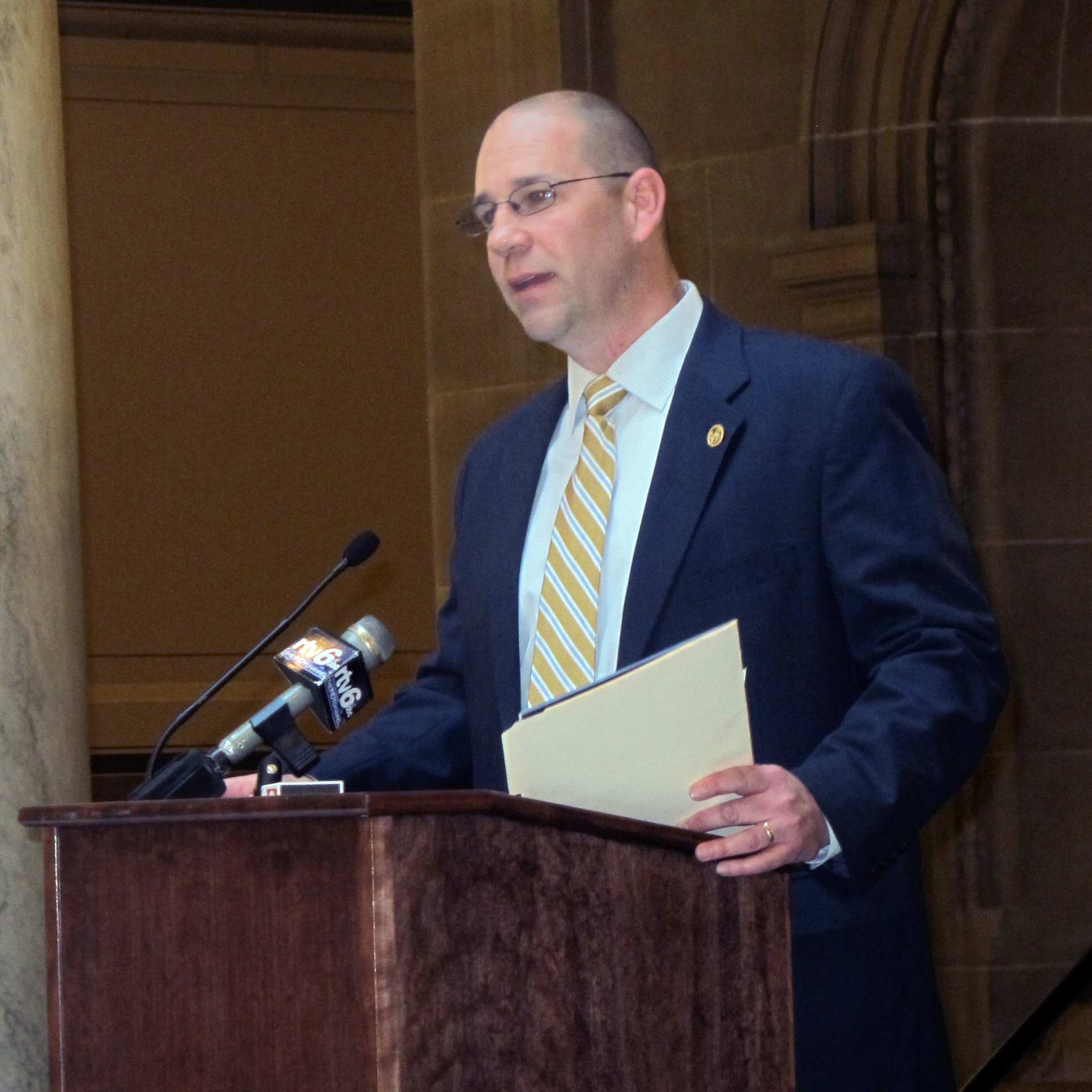Legislative Panel One Vote Short, Doesn’t Recommend Indiana Leave Common Core

Elle Moxley / StateImpact Indiana
Rep. Justin Moed, D-Indianapolis, rejected a proposal to require the State Board write new academic standards. He was the only Democrat at the final meeting of the legislative panel reviewing Common Core in Indiana.
The legislative committee reviewing the Common Core academic standards couldn’t muster enough votes Friday to recommend the state write its own expectations for students.
Six Republicans and six Democrats have taken nearly 30 hours of testimony on the Common Core since state lawmakers voted to pause rollout of the new academic standards this spring. But the report they approved last month didn’t take a formal position on what expectations Indiana should set for students.
At the time, House Education Committee Chairman Bob Behning said there weren’t enough votes to recommend Indiana leave the Common Core State Standards initiative. The committee needed a majority of all members, not just those present, to pass a recommendation. But when the panel reconvened Friday, only one of the six Democrats showed up.
After Rep. Justin Moed, D-Indianapolis, rejected requiring the State Board of Education write new academic standards, Behning said statehouse Republicans would send their own note to Indiana education officials.
“We will have our leadership staff prepare a letter that we will send to the State Board to memorialize what we have put together here,” says Behning.
But Sen. Carlin Yoder, R-Middlebury, says he’s frustrated the recommendation isn’t coming from the legislative panel.

Elle Moxley / StateImpact Indiana
Rep. Bob Behning, R-Indianapolis, left, and Dennis Kruse, R-Auburn, co-chaired the interim study committee on the Common Core.
“We need someone to start leading on this issue,” says Yoder. “This was an attempt. We just keep spinning our wheels because the people who need to lead on the issue are refusing to lead on the issue.”
As we’ve written before, the State Board has the ultimate say on standards adoption. State law requires board members schedule their own hearings to review the Common Core before making a final decision on what expectations the state will use next.
If the State Board votes to keep the Common Core, Behning says he doesn’t know if lawmakers will try to challenge the standards again next session.
“I think the biggest issue among a lot of Hoosiers, especially those members of this committee, is the fact that we want to make sure Indiana is sovereign in terms of its education destiny and that the federal government is not dictating to us exactly how we have to move forward,” says Behning.
Groups that have advocated to keep the Common Core in Indiana say opponents haven’t offered a reasonable alternative to the nationally-crafted standards.“If that does happen at some point in this lengthy review process, all involved will need to determine whether or not it truly raises the bar for Hoosier students,” Indiana Chamber of Commerce President Kevin Brinegar said in a statement. “Meanwhile, the Indiana Chamber will continue to advocate for any student data concerns to be addressed via legislation and for the state to maintain the ability to modify the standards as well as decide what assessments are used.”
But many anti-Common Core activists say Indiana needs to return to the academic standards Hoosier educators wrote in 2009. Indianapolis parent Erin Tuttle is co-founder of Hoosiers Against the Common Core, the group that’s led the statehouse push to exit the initiative. She’d like to see Indiana base its expectations for students on those previous standards, not the Common Core.
“Let’s use what we have that meets those requirements and makes everybody happy,” says Tuttle. “I don’t think there’s any need to reinvent the wheel.”


